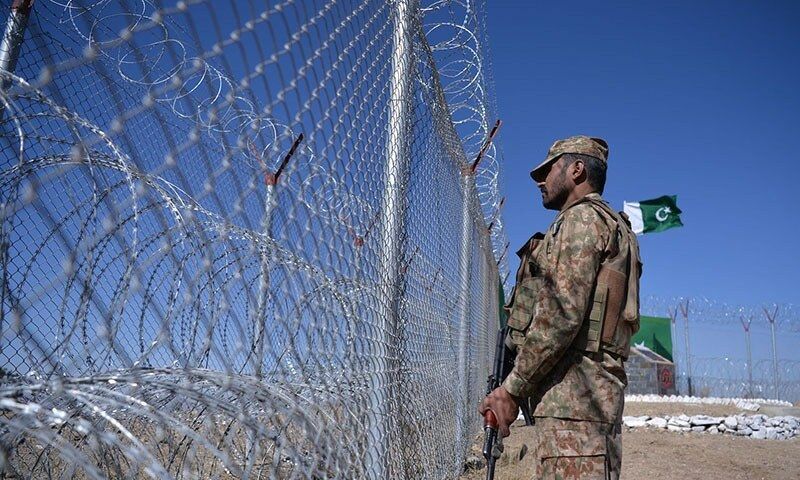Pakistan armed forces have found that their neighbors in Afghanistan need closer scrutiny. The Northwest frontier has become a constant security concern for Pakistan. Since the Taliban’s takeover in Afghanistan two years ago, Pakistan has witnessed a 73 percent surge in terrorist attacks. The Tehreek-e-Taliban Pakistan (TTP), also called the Pakistani Taliban is the largest militant organization fighting against the state of Pakistan. It has grown in confidence and resources following the Afghan Taliban’s return to power in 2021. TTP as a group is ideologically fueled by both Pashtun nationalism and Islamic fundamentalism. It has strongholds on both sides of the Afghan-Pakistan border also known as the Durand line. Established in 2007 under the leadership of Baitullah Mehsud. Slowly and steadily TTP has become an umbrella organization of various Islamist militant groups operation across the Afghan and Pakistan border. Their aim is to establish a theocratic state, based on their interpretation of Islam. In addition to administering strict Shariah (Islamic law), their objectives encompass securing members’ release and reducing the Pakistani military presence in Khyber Pakhtunkhwa.
Pakistan has witnessed an uptick in terror activities in recent months, especially in Khyber Pakhtunkhwa and Baluchistan. According to Pakistan Institute for Conflict and Security Studies (PICSS) the number of militant attacks in August 2023 were the highest tally for monthly strikes in almost nine years. There were 99 attacks across Pakistan, the highest number in a single month since November 2014. The data showed a month-on-month increase of 83 per cent, compared to 54 attacks reported in July. There were four suicide attacks in August, three in tribal districts and one in mainland Khyber Pakhtunkhwa.
The years 2021 and 2022 saw a dramatic increase in violence. Khyber Pakhtunwa experienced a striking 108% rise in terror incidents during the first six months of 2023 compared to the corresponding period of the previous year. A comparative analysis of terrorism-related fatalities in first six months of a year in the province show that the fatalities recorded in 2023 were highest since 2014.
Terrorism-related fatalities in Khyber Pakhtunwa, January-June: 2013 to 2023
|
Year |
2023 |
2022 |
2021 |
2020 |
2019 |
2018 |
2017 |
2016 |
2015 |
2014 |
2013 |
|
Fatalities |
381 |
286 |
141 |
110 |
54 |
40 |
87 |
129 |
134 |
291 |
544 |
In August, after suffering from so many attacks, corps commanders of the Pakistan Army blamed Kabul for the uptick in militancy, saying that safe havens and liberty of action, along with the latest weapons available to militants from Afghanistan enabled them to carry out attacks inside Pakistan. The United States State Department also reminded Afghan Taliban that it’s their responsibility to ensure that their country isn’t used for terror attacks. Pakistan demanded a public decree from the Afghan Taliban chief declaring activities of banned Tehreek-e-Taliban Pakistan (TTP) as un-Islamic. Islamabad dispatched a senior diplomat to Kabul for a three-day trip with a clear message that the interim Afghan government will have to abide by the commitment it made with the international community in Doha Agreement.
TTP has modernized its arsenal. It has been revealed that the TTP terrorists who attacked the Zhob garrison in July in northern Baluchistan were donning uniforms of US soldiers, helmets, and hand gloves and were equipped with the latest US weapons including M16 Assault Rifles. Questions were raised on how the latest weapons, uniforms and other stuff reached the TTP terrorists. The Afghan Taliban, who funded their war with drugs and other contraband, continue to do so. They are selling weapon left behind by the Americans to terrorists from all over the world. Tehreek-e-Taliban Pakistan and separatists in Baluchistan are using these made-in-America weapons in an aggressive campaign against the Pakistani state who actually helped Taliban come to power in Afghanistan. Recent infiltration attempts by militants on Pak-Afghan border in Chitral and a border skirmish between Pakistani and Afghan border security forces at Torkham, shutting the busiest trade crossing between the two countries, has put the relations between both the countries on a highly dysfunctional phase.
References:
https://www.asiapacific.ca/publication/pakistan-scrambles-taliban-threat-appears-horizon
Asfandyar Mir, United States Institute of Peace
https://foreignpolicy.com/2023/07/05/taliban-afghanistan-arms-dealers-weapons-sales-terrorism/
https://arynews.tv/zhob-attack-ttp-terrorists-used-american-weapons-uniforms/








